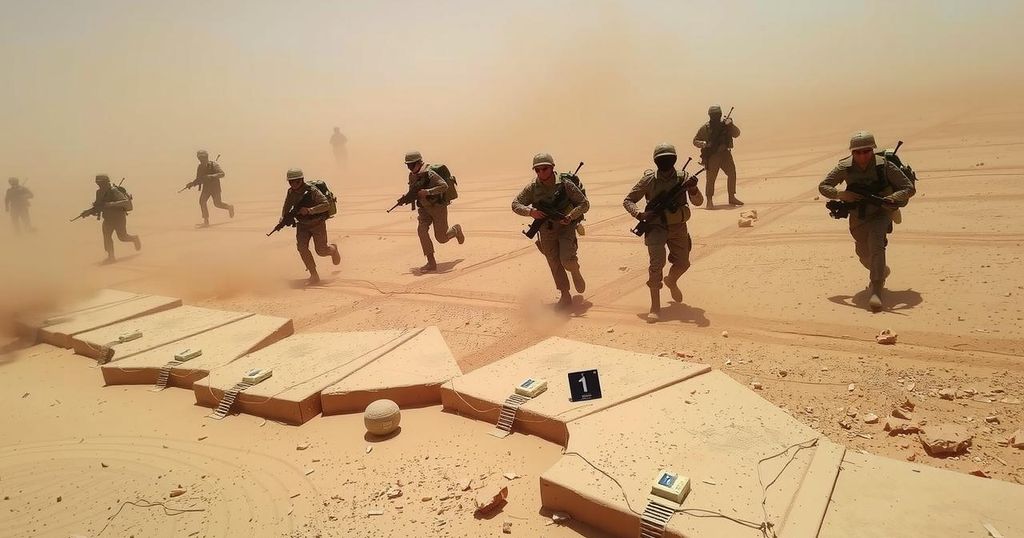Sudan’s RSF Regains Control of Key Darfur Base amid Rising Tensions

The Rapid Support Forces (RSF) of Sudan have regained control of Al-Zurug base in North Darfur from army allies in a conflict that erupted in April 2023. This clash has intensified ethnic tensions, with both sides accusing each other of human rights violations. The humanitarian situation remains dire with significant civilian casualties reported, as the RSF aims to fortify its hold and possibly establish a parallel governance structure.
Sudan’s Rapid Support Forces (RSF) have reclaimed a vital logistical base in North Darfur, as stated by the paramilitary group, following its capture by rival forces associated with the national army. This resurgence comes amidst ongoing clashes that began in April 2023. Notably, the Al-Zurug base has served as a critical supply hub for the RSF, allowing for the transportation of resources across borders from Chad and Libya.
The conflict in Darfur has intensified, particularly in North Darfur, as the RSF and the army, along with the allied Joint Forces, engage in fierce battles to secure dominant positions. The Joint Forces reported that they had taken control of Al-Zurug the previous day, resulting in significant combat losses for the RSF, including fatalities and destroyed vehicles. This episode is likely to exacerbate ethnic tensions between the RSF, which predominantly consists of Arab tribes, and the Zaghawa tribe forming a majority within the Joint Forces.
The RSF condemned the actions of the Joint Forces, claiming that their raid involved the ethnic cleansing of civilians, leading to numerous deaths and the destruction of essential infrastructure. Conversely, the Joint Forces accused the RSF of using Al-Zurug as a base for offensives targeting civilian populations in regions, including Al-Fashir, the capital of North Darfur. Since hostilities increased in that area, United Nations reports indicate that at least 782 civilians have died due to the conflicts, which involve artillery and aerial assaults from both the RSF and the Sudanese army.
Furthermore, activists reported multiple missile strikes on Al-Fashir, indicating an escalation in military actions as the RSF seeks to reinforce its influence and consider establishing a parallel government in opposition to the national authorities based in Port Sudan.
The conflict in Sudan, particularly centered around Darfur, has roots that extend deep into the nation’s complicated political landscape. Since the outbreak of fighting between the RSF and Sudanese army in April 2023, the situation has deteriorated sharply, with battles primarily occurring in North Darfur. The RSF has historically aimed to maintain control over key logistical routes to facilitate the movement and support of its operations, while ethnic tensions have grown amid competing claims of violence and human rights abuses between the contending forces. International observers have expressed concerns regarding the humanitarian implications of the conflicts, including civilian casualties and displacement.
In summary, the recent recovery of the Al-Zurug base by the RSF underscores the volatile nature of the ongoing conflicts in North Darfur. This situation not only poses immediate risks to civilian safety but also threatens to escalate ethnic tensions within the region. The fighting has led to significant loss of life and substantial destruction of infrastructure, prompting international concern for humanitarian conditions. The RSF’s strategic moves suggest a drive towards establishing administrative control, further complicating the political dynamics in Sudan.
Original Source: www.arabnews.com








